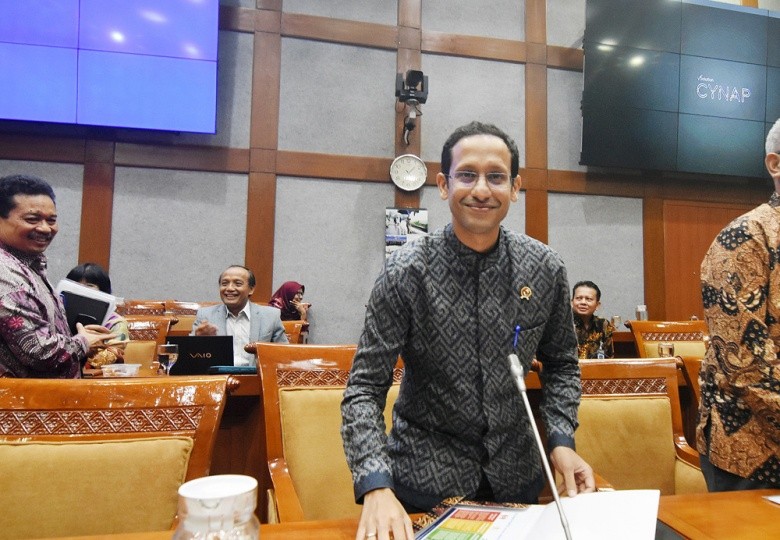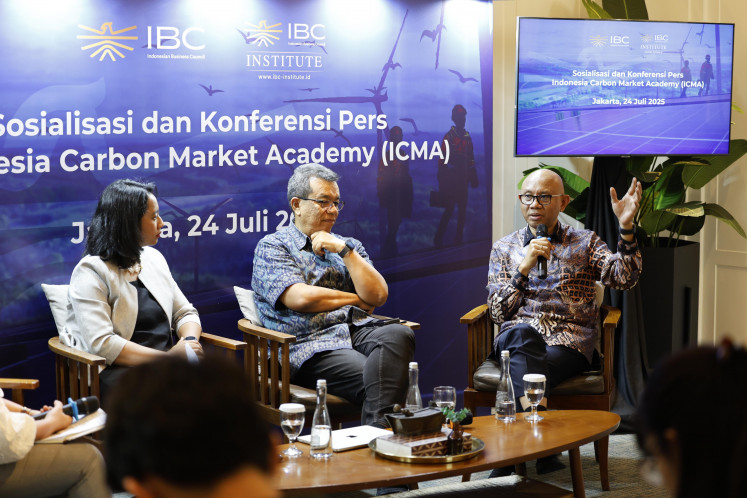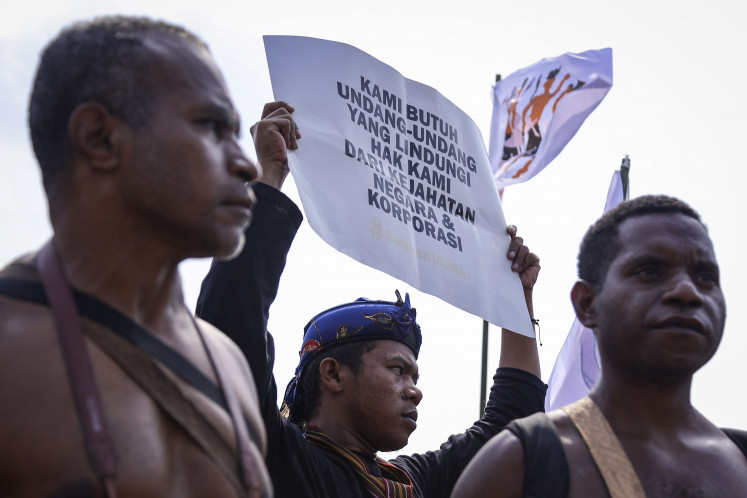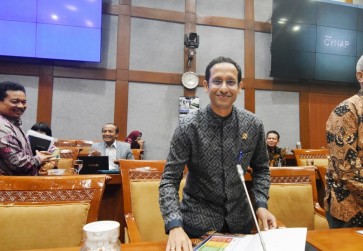Popular Reads
Top Results
Can't find what you're looking for?
View all search resultsPopular Reads
Top Results
Can't find what you're looking for?
View all search resultsNadiem, modernization and Islamization of education
Despite the doubts about minister Nadiem with his business background, he has the potential to undertake educational reform. As some critics have said, naturally it is impossible to manage Indonesian education with merely the start-up approach he is famous for, in which gaining and losing is part of growing a business. As a minister, he must win.
Change text size
Gift Premium Articles
to Anyone
 Despite the doubts about minister Nadiem with his business background, he has the potential to undertake educational reform. As some critics have said, naturally it is impossible to manage Indonesian education with merely the start-up approach he is famous for, in which gaining and losing is part of growing a business. As a minister, he must win. (Antara/Indrianto Eko Suwarso)
Despite the doubts about minister Nadiem with his business background, he has the potential to undertake educational reform. As some critics have said, naturally it is impossible to manage Indonesian education with merely the start-up approach he is famous for, in which gaining and losing is part of growing a business. As a minister, he must win. (Antara/Indrianto Eko Suwarso)
T
he appointment of Nadiem Makarim as the education and culture minister has sparked a variety of opinions regarding his capability to undertake educational reform, especially given his popularity as the founder of the successful ride-hailing start-up, Gojek.
Any attempt at educational reform in Indonesia should consider both the modernization and Islamization streams in the public sphere. Experts on Indonesian studies, such as Elisabeth Jakson and Lyn Parker, have warned that the local public sphere has always been a battleground between these two conflicting interests.
Management of the Indonesian education system is divided between the Religious Affairs Ministry and the Education and Culture Ministry. Nevertheless, religious instruction is compulsory at all schools, not only in religious schools but also in general education schools. Therefore, the Indonesian education system has always been religious to some extent.
Historically, religious education played a pivotal role in building a sense of identity among the Muslim community here. Many Muslim intellectuals during the colonial era possessed a high degree of resistance that was deemed dangerous to the political stability of the colonial government. Muslim intellectuals who had just returned from the haj to Mecca embraced a new spirit of resistance from their spiritual and intellectual journey.
By offering Western-style schooling, the Dutch colonial government aimed to control these intellectuals and to eradicate the impacts of religious education. Any attempt to modernize Indonesia’s education system should consider the historical aspects of the secular education that was first established by the colonial government.
By the end of the colonial era, the nationalist agenda clearly dominated the local populace. However, the religious spirit has never been absent from the public interest. The establishment of the Religious Affairs Ministry reflected the institutionalization of religion in all aspects of public life.
Several attempts have been made to simultaneously Islamize and modernize education in Indonesia.

















